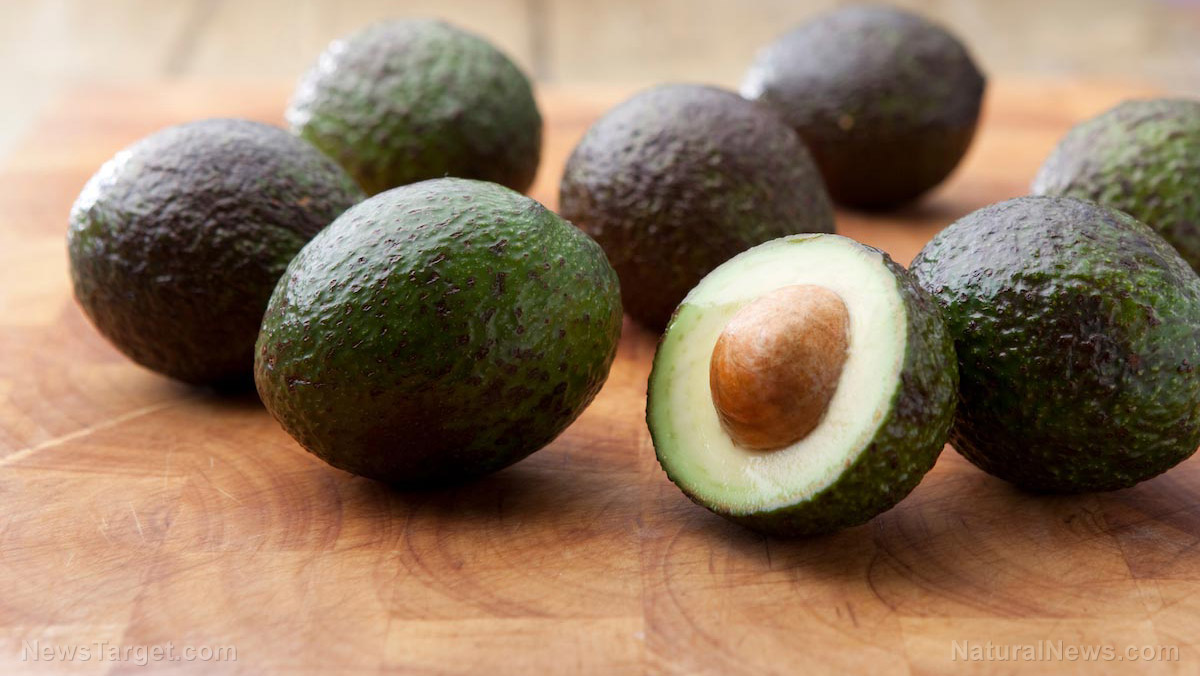Avocados are REAL superfoods with plenty of health benefits
11/04/2019 / By Darnel Fernandez

The avocado is a versatile superfood packed with over 20 vitamins and minerals that help support the body. It can be eaten on its own, as a garnish, or even as a dip in your favorite Mexican restaurant. Nowadays, the avocado has become a popular health food due to the variety of health benefits it provides. Some of these health benefits include supporting heart health, maintaining healthy skin, and improving eyesight.
Mean, healthful green machine
The avocado, scientifically known as Persea americana, is a fruit from the avocado tree. This fruit varies in shape and color and is highly prized for being nutrient-dense. It is also known as the alligator pear, referring to its green, bumpy skin akin to that of an alligator.
Most people used to steer clear from adding avocados to their diet due to their reportedly high-fat content. However, researchers from the Illinois Institute of Technology observed the benefits of avocados on overweight and obese people. Despite the fat content in avocados, the researchers found that avocados can assist in weight loss. They saw that participants who consumed avocados together with their daily meals were less hungry afterward than those who consumed a low-fat, high-carbohydrate diet. Their findings suggest that avocados make you full longer, allowing you to eat much less every day. (Related: Consume this superfood – in moderation – to naturally curb your appetite.)
Eating plenty of fruits and vegetables in a plant-based diet has always been associated with plenty of health benefits that can reduce the risk of lifestyle-related health conditions. By adding avocados to your diet, you can promote your health as you journey onward to wellness and a healthier lifestyle. Here are a few health benefits provided by consuming avocados:

Promotes heart health
Research has shown that avocados are a rich source of beta-sitosterol, a plant-based substance similar to cholesterol. This substance plays a significant role in preventing cardiovascular disease by lowering the LDL or “bad” cholesterol in the blood. They are also loaded with oleic acid, a heart-healthy monosaturated fatty acid that is associated with reduced inflammation, lowered blood pressure.
Also, avocados are found to have a higher potassium content than bananas. A 100-gram serving equates to 14 percent of the recommended daily allowance for potassium, beating out the banana’s 10 percent. This nutrient assists in maintaining a healthy heart rate and preventing the hardening of arteries.
Supports healthier eyes
Studies have shown that avocados contain antioxidants like the carotenoids lutein and zeaxanthin, which are linked to a reduced risk of age-related maculopathy and cataract. These conditions are often caused by free radical damage that builds up in the tissues of the eye. Due to the antioxidant activity of these two carotenoids, eating avocado can help neutralize and prevent these conditions from happening.
Maintains healthy skin
These fruits assist in the absorption of critical nutrients like beta-carotene and provitamin A, which help keep the healthfulness and glow of the skin. Not only does it enrich the skin with its many nutrients, but it also makes it easier for the body to patch up skin imperfections like wounds.
In a study published in the Journal of Wound Care, researchers administered avocado extract on excision and dead space wound models in rats. They divided the rats into multiple groups and assessed how fast the wound contracted. Their results show that rats supplemented with avocado extract saw significant improvements in wound healing time compared to the control rat group, which was not given avocado. The findings suggest and support the use of avocados in wound healing management.
Avocados are excellent superfoods that contain vitamins and minerals that are entirely lacking in plenty of modern diets. Add more superfoods to your day-to-day lives by looking up their health benefits at Superfood.news.
Sources include:
Submit a correction >>
Tagged Under:
cardiovascular health, clean food, eye health, food secrets, functional food, grocery, heart health, nutrients, organics, prevention, skin health
This article may contain statements that reflect the opinion of the author





















